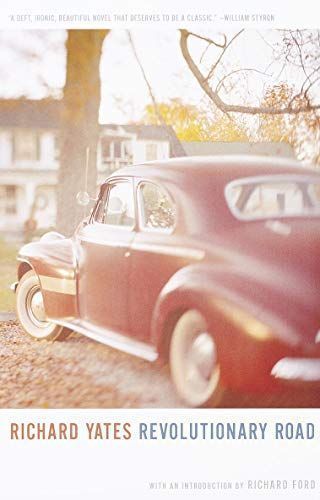
Revolutionary Road
THIS ORANGE INHERITANCE EDITION OF Revolutionary Road IS PUBLISHED IN ASSOCIATION WITH THE ORANGE PRIZE FOR FICTION Books shape our lives and transform the way we see ourselves and each other. The best books are timeless and continue to be relevant generation after generation. Vintage Classics asked the winners of The Orange Prize for Fiction which books they would pass onto the next generation and why. Lionel Shriver chose Revolutionary Road. This is the story of Frank and April Wheeler, a bright, beautiful, and talented couple whose empty suburban life is held together by the dream that greatness is only just round the corner. With heartbreaking compassion and clarity, Richard Yates shows how Frank and April mortgage their hopes and ideals, betraying in the end not only each other, but their own best selves. 'I can't think of a better novel to hand on to readers growing up today than Revolutionary Road' Lionel Shriver
Reviews
Lindy@lindyb
Joana da Silva@julesdsilva
Bob Simone@simonerp
Melody Izard@mizard
Sara@saramarzi
Jade Flynn@jadeflynn
André Nóbrega@anobrega85
Trevor Berrett@mookse
Laura Leila Marta@lauraleila
Jessica Smith@jayeless
Janet Doré@vistacanas
Lexie @lexieneeley
Erika A@isthaterikaa
west@west
Celina Gacias@shellkyle
Gabe Cortez@gabegortez
Michael Novak@novak
Susan McLemore@susanluvscheese
Anna @berthamason
Will Vunderink@willvunderink
Karen Scarlet @draculasdaughter88
shelby mosel@shelbymosel
Wynter@wynter
Tanlyn Roelofs@tanroe